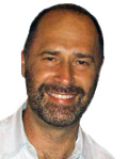Relationships
The Power of the Gifts We Hide
The balance between our true self and our false self
Posted December 17, 2013 Reviewed by Davia Sills
Each of us creates a “false self” to protect our “true self” when it feels frightening to be genuine in the world. If our false self becomes dominant, it begins to bury the very qualities it was originally designed to protect. These buried qualities often hold the key to deeper love, creativity, and meaning in our lives. How can we free them?
In this post, we will explore the process of rediscovering and gradually liberating these challenging but life-changing aspects of our true self. I call these attributes “Core Gifts” and describe them in greater detail in my book, Deeper Dating: How to Drop the Games of Seduction and Discover the Power of Intimacy. In my years as a psychotherapist, I have increasingly become convinced that they hold the “missing link” in our search for a richer and more meaningful life.
The great psychoanalytic theorist D.W. Winnicott used the term “false self” to describe the defensive structure a young child creates when his or her mother can’t respond to him or her with empathy and care. No parent is perfect, but if this lack of empathic response is chronic, the child is forced to create a false self that meets the mother's needs, not their own. The more the child comes to feel that their true self isn’t appreciated or cherished, the more the false self becomes dominant. Winnicott describes a terrible poverty of inner life that arises from the ascendency of the false self, a loss of our innate vitality, joy, and creativity,
Virtually all of us need some degree of the false self to smooth the waters of our day-to-day life. Yet, when we become too dependent upon our false self, we lose the spark of our deepest and most unique gifts. The gifts of our true selves are often challenging to live with. How could they be easy? They hold our greatest yearning, our most risky thoughts and ideas, our most essential vulnerability, and our most profound needs.
The true self is challenging in both its power and its tenderness. Unless we are taught to work with its force and vulnerability, we lose our link to it. We rely more and more upon our false selves and become more and more uncomfortable with our true selves. As this happens, we lose our ability to create, to play, and to love. Kierkegaard said that "the deepest form of despair is to choose to be another than himself.”
A few years ago, after committing to way too many promises, I found myself trapped in a web of obligations that felt impossible to reconcile. I felt as though I was becoming crowded out of my own good life, with few options to change that. I discussed this with my wise mentor, John McNeill, and his response shed new and intriguing light on the situation.
He said, “Ken, I somehow feel that you don’t have enough access to your true self in this situation.”
John forged ahead and asked me to describe my true self and my false self in this situation. I knew about the concept of the true and false self, but I had never been bluntly asked to define my own. And when I did, my answer was clear. Scarily, beautifully clear.
I had been putting my obligations ahead of my well-being, and those obligations were becoming senior to me. My false self (the people-pleaser) wouldn’t let me say no without guilt. My true self felt trapped and yearned to take a stand. Yet my false self could not allow that.
Without a visceral connection to my true self, I simply did not have the power to pull myself out of the quicksand of my obligations. My inner strength had been buried, and the false self, the people pleaser I had learned to rely upon, simply wasn’t strong enough to handle the challenge of my life at that time.
And this is usually the case: As long as we lead with our false self, we will always feel inadequate, because the false self is inadequate. It has no link to our personal power. Relying upon our false self is like climbing a wobbly ladder. We will always be afraid of getting toppled.
Naming and valuing my true self gave me the courage to make some hard phone calls, pull back from some duties, and extend some deadlines I feared were immoveable. People’s responses were kind and understanding. Yet, prior to my conversation with John, it would have been impossible for me to make those requests of the people I cared about.
Simply naming my true self and my false self in that situation was enough to change my entire view of things. When the pressure of those deadlines was lifted, my good life came back. Like most of us, I’m happiest when I allow myself time to breathe, reflect, and enjoy my loved ones.
Yet, again and again, the false self which tries to prove my worth attempts to bury me in an avalanche of duties. Willpower is insufficient to change this dynamic. It requires a current relationship with my own true self, the part of me which values a full life more than the pleasure of wrestling my checklist into submission.
I invite you to ask yourself the same question my mentor asked me. Think of an aspect of your life which is causing concern for you, and reflect upon these three questions:
- What aspect(s) of your true self have you been frightened to fully claim in this situation?
- What is the false self you created to hide this true self?
- Can you name that aspect as a gift? What would it look like to engage that true self more fully in this situation?
As you reflect upon what it might look like to engage your true self, remember that it takes time and patience to develop the skills to handle the heat and power of our core gifts. Until we learn those skills, we will tend to either suppress our core gifts or express them in aggressive ways.
It’s also important to remember that our gifts can tell how committed we are to their protection. As much as we may try to roust them out of hiding, they usually won’t come out until they know we have their back. The false self is immensely strong; it was forged out of an urgent need for self-protection. In fact, according to Winnicott, the need to protect our true self is so great that some of us choose death over a threat to that self.
In order to liberate these core gifts, it is essential that we find and build relationships with people who are capable of honoring those qualities in us. In the next post, we will explore three important tools for excavating and reclaiming our core gifts.
Discovering and reclaiming the true self is one of the great adventures of our lifetime. Please feel free to write and share your answers and reflections in response to the above questions.
© 2013 Ken Page, LCSW. All Rights Reserved




